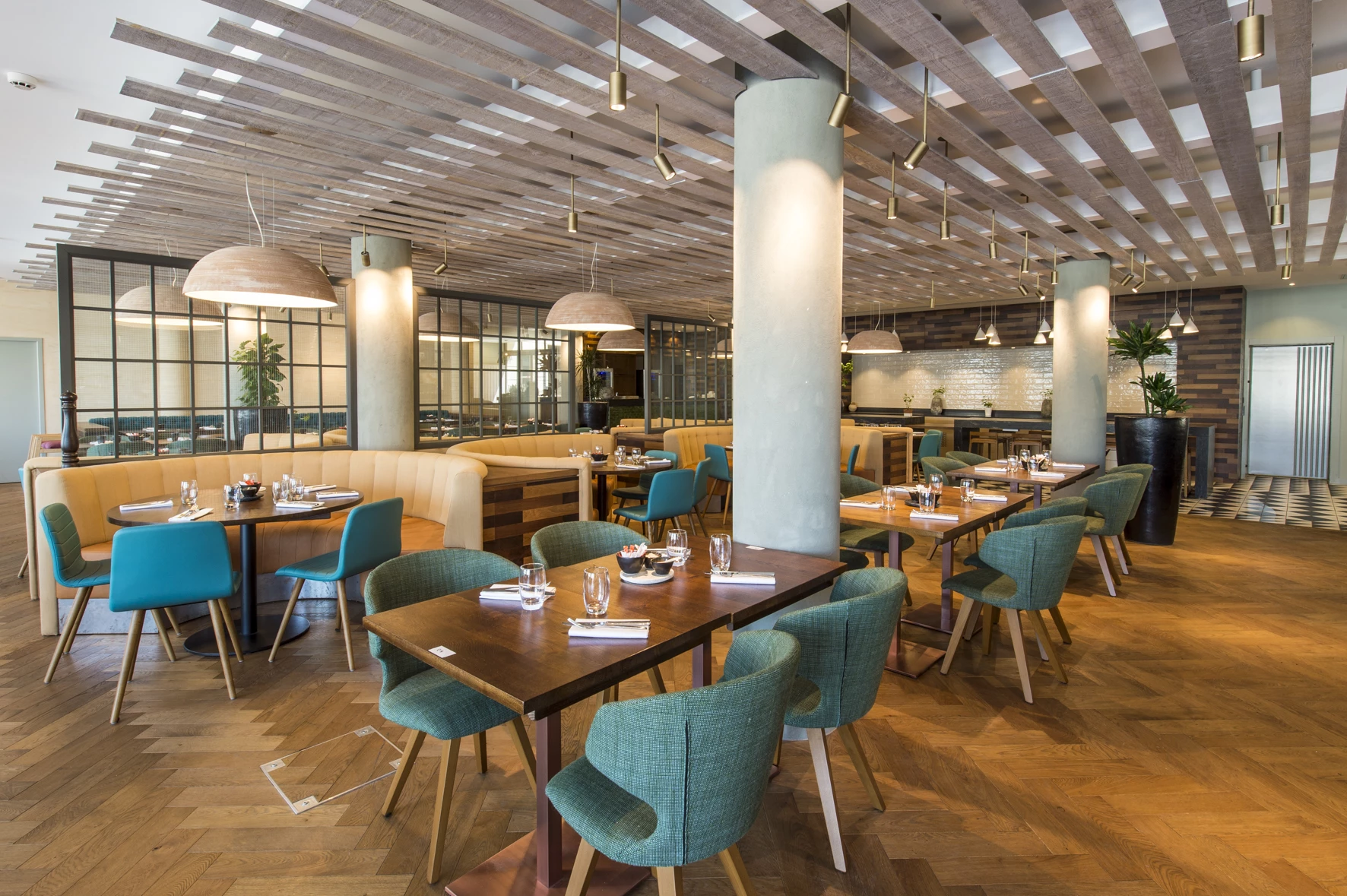
Member Article
How hoteliers can adopt a disrupter mentality to attract millennials
It’s fair to say we’ve all had our share of disappointing generic food and drink experiences at hotels over the years. The badly lit unwelcoming lobby, the dismissive staff, the identikit breakfast offering, the extortionate room service – the list goes on. But fear not, it doesn’t always have to be this way.
According to our internationally renowned Food and Beverage Development Consultant and former chef, Andrea Stewart, while it has taken hotels many years to shed the perceived ‘hotel dining’ image and begin to stand on their own two feet, things are changing fast – and it doesn’t take a PhD to figure out why – millennials.
Stewart says: “Restaurants within the walls of most hotels just weren’t showing up on the radar of Generation Y who constantly search for the small, charming one-off concepts or unique experiences. Yet, it is evident that if hotels are able to rethink their F&B strategies and create more engaging experiences there is a massive opportunity to capitalise.”
We can see these opportunities in evidence in a recent report by Deloitte which highlighted that a resurgence in leisure spending in the UK, particularly in bars and pubs, is being driven by 18-34-year-old consumers.
And with a plethora of quality high street dining options available and the emergence of Deliveroo and Uber EATS challenging the traditional ways of doing business, hoteliers more than ever need to adopt a disrupter mentality to attract this lucrative audience and build new footfall.
Lobbying for change
Our company philosophy is to challenge consumer expectations through the power of immersive design, enabling hotels to create all-day offerings and deliver memorable customer experiences. Part of this disruptive thinking is to change the lobby and dining environments to encourage socialising.
Formal lobbies are being replaced with designs that develop a more intimate and discreet experience, treating every customer as an individual and allowing them to utilise the space throughout the day.
This “Co-tel” concept helps to create a link within the local community and enables the development of a social hub – making hotels a place to meet, and a place to eat whether you are a staying guest or not.
Breakfast is the new dinner
The Ned, London is a great example of challenging assumptions by making the food and beverage offering, not the entrance lobby, the first stage of the customer journey. The concept capitalises on the growing trend for business meetings to be held at breakfast, with hotels upping their game by offering healthier menus alongside craft coffee and speciality tea, in settings that are designed to inspire and help facilitate business.
Retail inspiration
Hoteliers also need to draw inspiration from non-food and drink retailers who place great importance in understanding who their customers are and the experiences they are looking for.
Imagine what a restaurant designed by Apple would look like. We know it would be minimalistic and stylish, with the removal of boundaries separating the inside from the out, as well as being infused with the latest in interactive technology to create a unique and rewarding experience.
By adopting a retail mindset, hoteliers can begin to create food and drink destinations in their own right – think The Hoxton or The Ace Hotel pulling in consumers from the high street as well as remaining attractive to their hotel guests.
Adding theatre
Equally important according to Andrea Stewart, the food and beverage offering also “needs to be overhauled to compete with the high street – and not just in price – service and style also has to be considered.”
We know food and drink is not just about taste – it is a multi-sensory experience – and theatrical elements such as sophisticated and experimental cocktails, quirky rooftop bars or even elements of virtual or augmented reality will help to capture the imagination.
This innovative and dramatic switch in both the food and environments will help hoteliers to change the perception of ‘hotel dining’ while also successfully drawing in locals, making it a win-win for your guests who are looking for that unique experience.
Fundamentally, to attract millennials, it is essential that hoteliers adopt a disrupter mentality and create those ‘Instagrammable’ moments that surprise and inspire – and we believe that innovative design is at the heart of it.
By Dean Concannon, Design Director for Harrison, a leading hospitality concept creation consultancy
This was posted in Bdaily's Members' News section by Harrison .




 test article 123456789
test article 123456789
 hmcmh89cg45mh98-cg45hm89-
hmcmh89cg45mh98-cg45hm89-
 test456456456456456456
test456456456456456456
 test123123123123123123
test123123123123123123
 test xxxdiosphfjpodskhfiuodsh
test xxxdiosphfjpodskhfiuodsh
 Savour the flavour: North Tyneside Restaurant Week returns for 2024
Savour the flavour: North Tyneside Restaurant Week returns for 2024
 Six steps to finding the right buyer for your business
Six steps to finding the right buyer for your business
 Stephen signs off on a special night
Stephen signs off on a special night
 Life’s a Peachaus: Gillian Ridley Whittle
Life’s a Peachaus: Gillian Ridley Whittle
 Making a splash: Phil Groom
Making a splash: Phil Groom
 Making workplace wellbeing a priority
Making workplace wellbeing a priority
 A record of delivery, a promise of more: Ben Houchen
A record of delivery, a promise of more: Ben Houchen